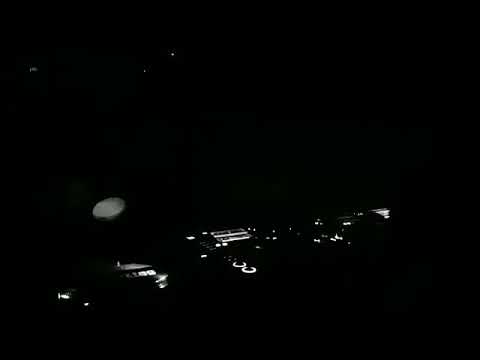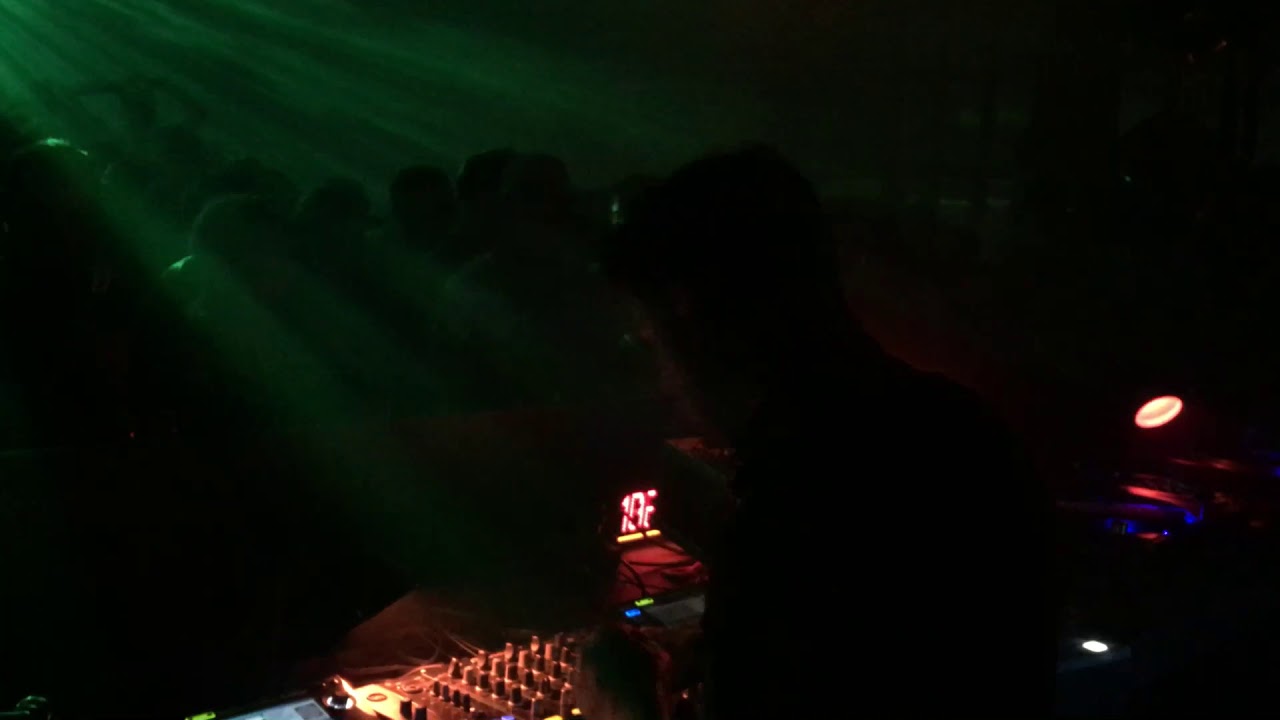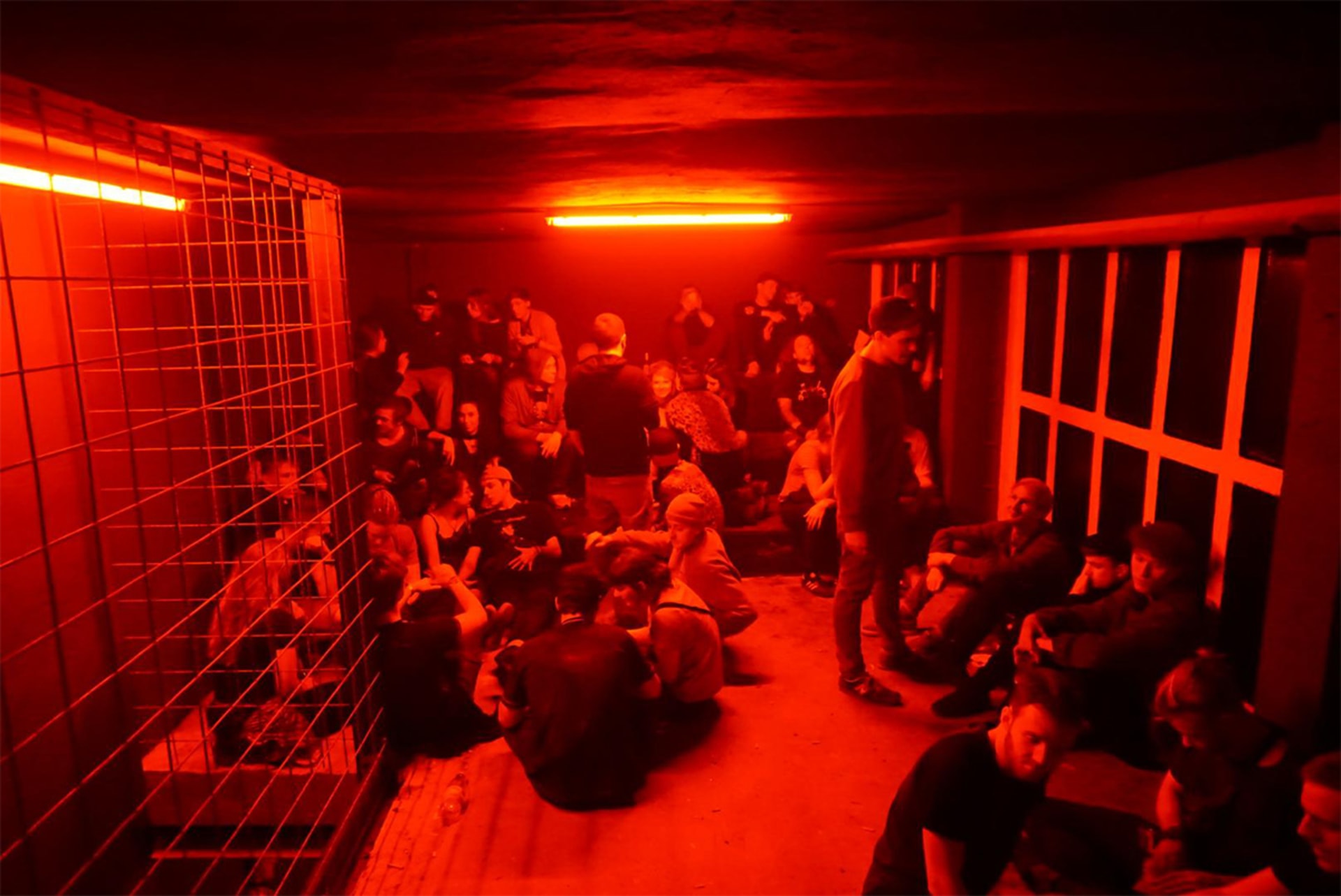
Techno Is Booming In Germany’s Smaller Cities, And Schwerin’s tanztag Club Proves It
Originally conceived as an open-air party in 2011, tanztag has since turned the northeast German town of Schwerin into a regional destination for techno heads.
From an outsider’s perspective, it might seem as though Germany’s techno scene is entirely centered around Berlin. And while the capital does exert an influence, the truth is that dance music is alive and well across the entirety of the country. That’s true in big cities like Hamburg, Cologne and Munich, but also in smaller towns, like Schwerin, the capital of the North German state of Mecklenburg-Western Pomerania.
There, in Schwerin, a seasonal warehouse party, called tanztag, has established itself as a local stronghold for the regions techno faithful. This is all the more impressive when you consider that the surrounding area is a rural countryside with few choices when it comes to high-quality underground techno.
The story of tanztag is the story of Toni Schütze and Heiko Gebhard, two friends who started throwing open-air events in 2011, and who have since developed their passion into a rambunctious warehouse party that could easily stand among the best if it was transported anywhere else in Germany, albeit with a vibe and flavor entirely of its own.
It should come as no surprise, then, that we’ve chosen to include tanztag in our Telekom Electronic Beats Clubnight tour through exemplary clubs in Germany. This Saturday, August 17 marks our first trip to Schwerin with a headline set by techno heavyweight Marcel Fengler. RSVP to the party here. Prior to the party, TEB senior editor Sven von Thülen (who will also DJ) sat down with the club’s organizers to learn more about this unique space.
Let’s start at the beginning
Heiko Gebhard: Everything started with a few illegal parties we threw.
Toni Schütze: That was 2008. We stumbled over an abandoned office building in the city center of Schwerin. It had been empty for a while so we decided to claim it and do a couple of parties there.
HG: We didn’t ask anyone or get a permit. We just started—Berlin style. After eight parties stretched over a period of two years we got a visit by the authorities. They shut us down for good.
TS: The trade office initiated a raid. They kicked us all out and sealed the door, so we couldn’t get back into the place. It really sucked but after those two years we were hooked to continue to throw parties and maybe, one day, to start our own club.
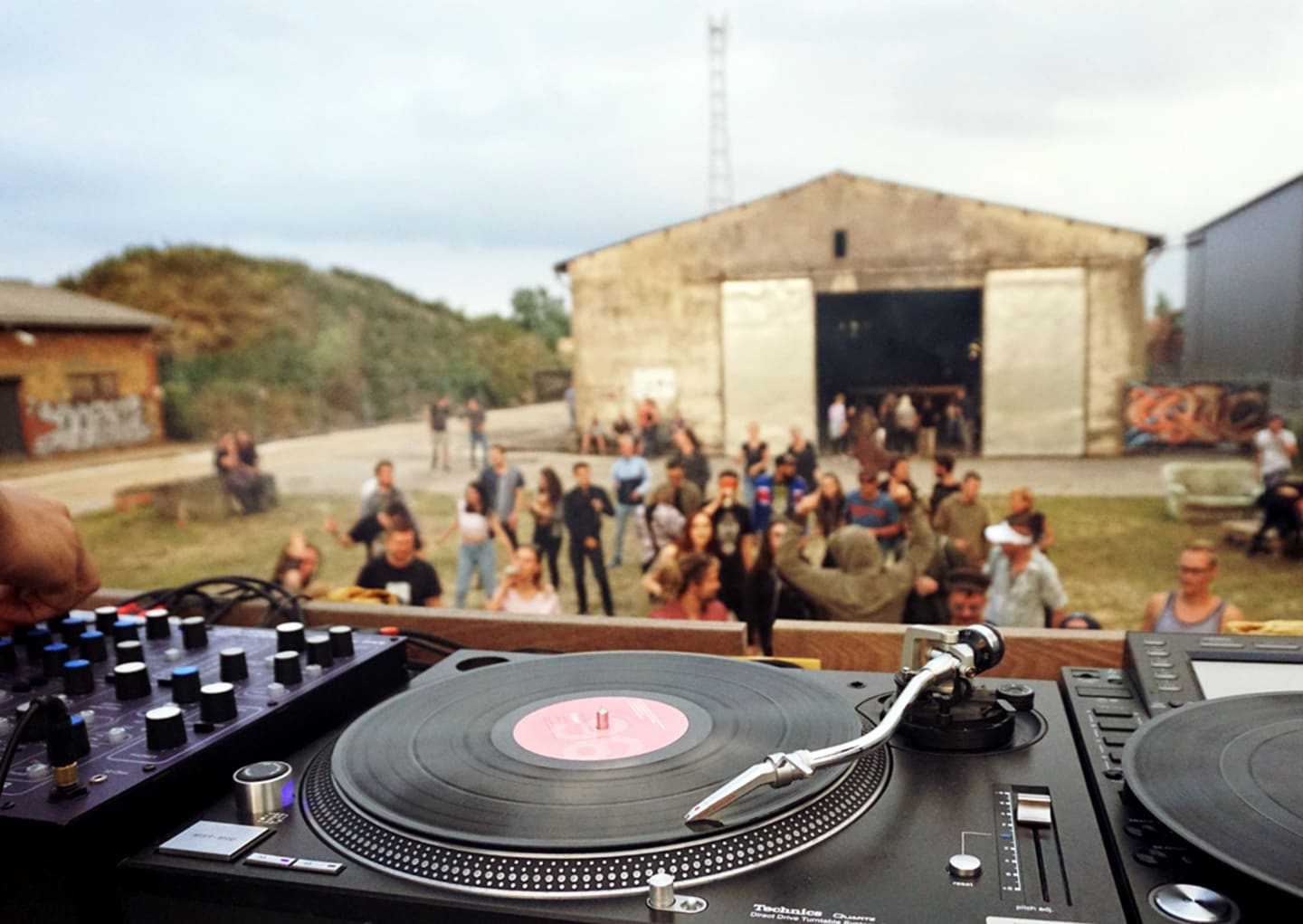
That’s when the idea of tanztag was born?
TS: Kind of. After that experience, we were clear that the next time we’d do something we needed a proper permit. Over the course of the two years we had invested a lot of time and energy into this location and to see this go down the shitter basically over night was an experience neither Heiko nor me wanted to repeat.
We started looking for a new location. I found a place in Schwerin-Süd. I showed it to Heiko, and he eventually discovered another place on the same premises, which was even better. We had the first tanztag party in 2011.
Originally, tanztag held open-air events, right?
HG: Yes. It was an open-air space, and the parties were daytime events. The easiest way to get a permit was to do something between noon and 10 pm. We built a wooden shack for the bar and the DJ booth, and that was that.
TS: After the first few events we came across a second location in another part of Schwerin. It was also only suited for open-airs. We switched locations a few times until the authorities came after us and forced us to stick to one and to register a trade. Tanztag had to become a legal entity.
HG: Schwerin is a small city with only 90 thousand residents. Nothing stays secret for too long in a city like this—especially if you have some success.
When did you find your current location?
TS: In 2013.
HG: When we entered the building we both had goosebumps. We both knew right away that this was the next step for tanztag. A beautiful old warehouse with large windows for up to 500 people in an industrial area without any neighbors. It was perfect.
TS: Initially we had wanted to start a club anyway. The new location provided all the characteristics of a great club, so we stopped with the open-air events and started fixing up the warehouse.
Let’s rewind a little bit. Until 2013 Schwerin was also home of Gerberei, a club run by Ron Albrecht, who is now part of the Dystopian crew and is also a Berghain regular. How important was Gerberei for you guys?
TS: We met at Gerberei, which for nearly 20 years was the club institution in Schwerin and its surrounding area. Between 1994 and 2013 it was the nucleus of the scene, where everyone who was into house, techno and rave met. I went there as a guest from around 1997 onward and became a resident DJ at Gerberei in 2006.
HG: Gerberei was really significant for my musical socialization. I discovered it a bit later than Toni. He is four years older than me and by the time I went to Gerberei for the first time he was already part of the furniture there. We became friends on the dance floor in the early 2000s. A bit earlier, in1999, I had been to the Fusion festival for the first time. I was like a sponge back then, observing and analyzing everything I saw. What makes a good vibe? What do I have to consider to create a great party?
TS: We clicked right away. Heiko was really curious and wanted to know every little detail needed to recreate that special underground vibe at Gerberei or Fusion.
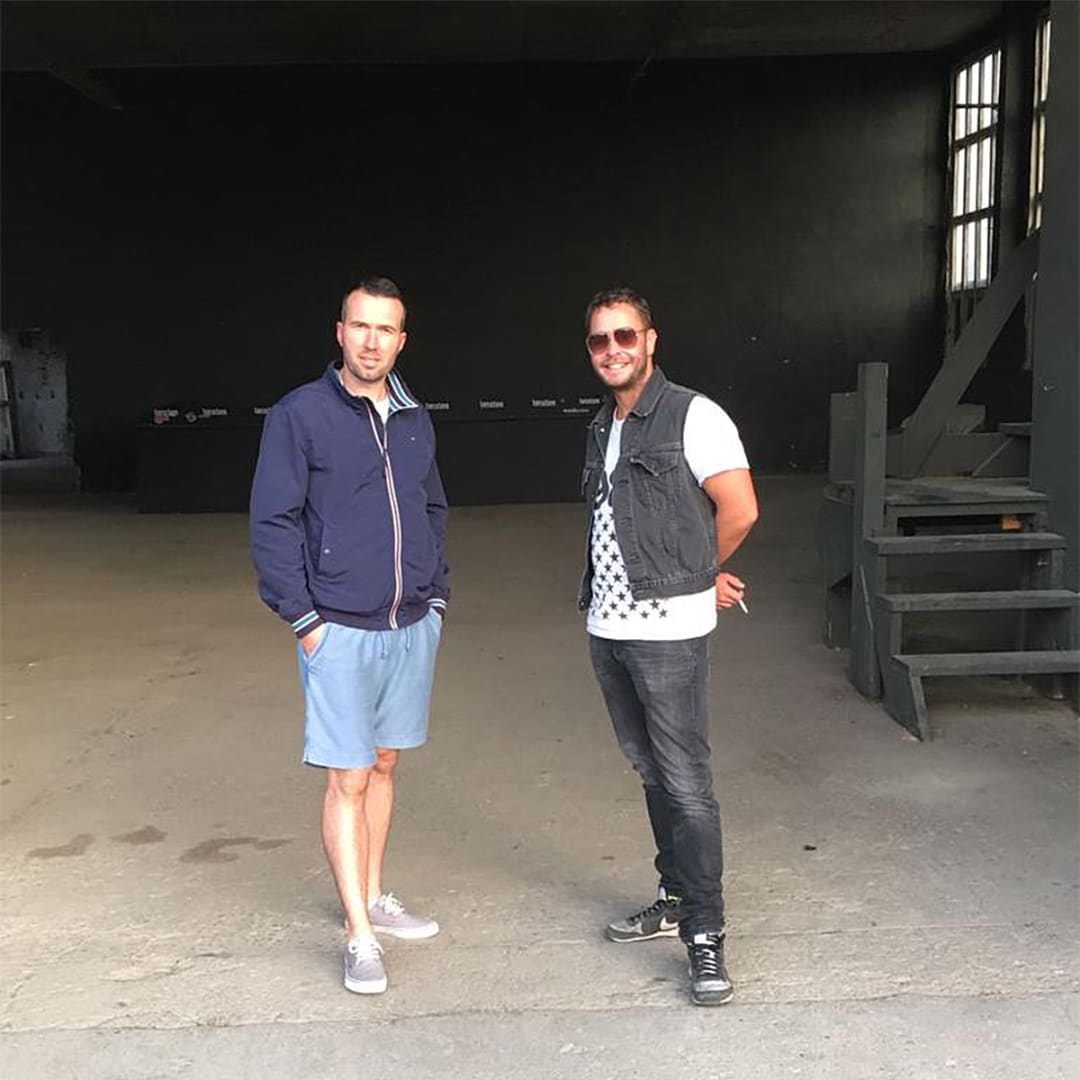
Is it fair to say, that a big chunk of your audience moved seamlessly from Gerberei to tanztag after Gerberei closed?
TS: The scene in Schwerin is small. Everybody knows everybody. When Gerberei had to close in 2013 a lot of its regulars were really happy that we continued tanztag in this new warehouse location. But it wasn’t a given that everyone just followed us. We had to prove ourselves a bit.
You’re also only open throughout the summer.
TS: tanztag is a seasonal event. We usually start around May and have monthly parties until September plus an additional party over Christmas. Having a weekly club is not possible in Schwerin. Even Gerberei was, for the most part, a monthly affair. People would lose interest otherwise.
HG: You have to keep it special. If there is a festival somewhere in the region on the same weekend or the weekend before, chances are that we really feel the impact of it in the numbers. Doing events in the countryside can be tough.
TS: That’s why tanztag is basically a passion project. It’s a bona fide hobby. We both have our regular nine-to-five jobs during the week. We love throwing parties though, and we try to make a little bit of money with it at least occasionally, but that is not always possible. Another thing that comes with the territory.
Are there any other clubs in or around Schwerin?
TS: In our region we are pretty much the only ones that are running underground techno parties the way we do it. There is no real competition. But a lot of people don’t really care all that much about international artists and high-quality bookings. The devoted tanztag regulars, sure, but most people just wanna have fun. If there is a party in the next small city or village where a friend is playing some kind of electronic dance music, a lot of people are satisfied with that, too. That party is an equally interesting alternative to them.
HG: That’s just part of doing parties in rural areas.

Since you are only open a handful of times a year. Does anybody else use the location apart from you?
TS: No, it’s just us. When we found it, it was just an empty warehouse. Now it looks more like a club ready for action. But technically calling it an off-location makes the most sense. We still have to install the sound system and fill the bar every time. And we still don’t have running water there or electricity. We never knew how long we could stay, so we only planned from season to season. Luckily, that has changed now, and we can start to think a few years ahead. The next thing we’ll do is invest in running water and electricity. When you ask for €15 at the door some guests aren’t that happy about having to use latrines.
Despite all the challenges it’s also great to do parties in a city like Schwerin. The scene is small and it’s a really tight-knit community. I love this familial vibe. It’s a well of inspiration, and it motivates me a lot.
Heiko, you live in Berlin, though. When did you move?
HG: I moved to Berlin ten years ago. Living in Schwerin felt increasingly claustrophobic and not really suited for a free spirit like myself. I never regretted the move. At the same time, I still feel strongly about Schwerin and the region. Tanztag, to me, is like a civic duty. I want to be the one bringing the spirit of an underground techno party to the city. It’s a real shame when local scenes just die out and whole regions become culturally deserted. I don’t want that for Schwerin. If you love electronic music there aren’t that many alternatives around here to begin with.
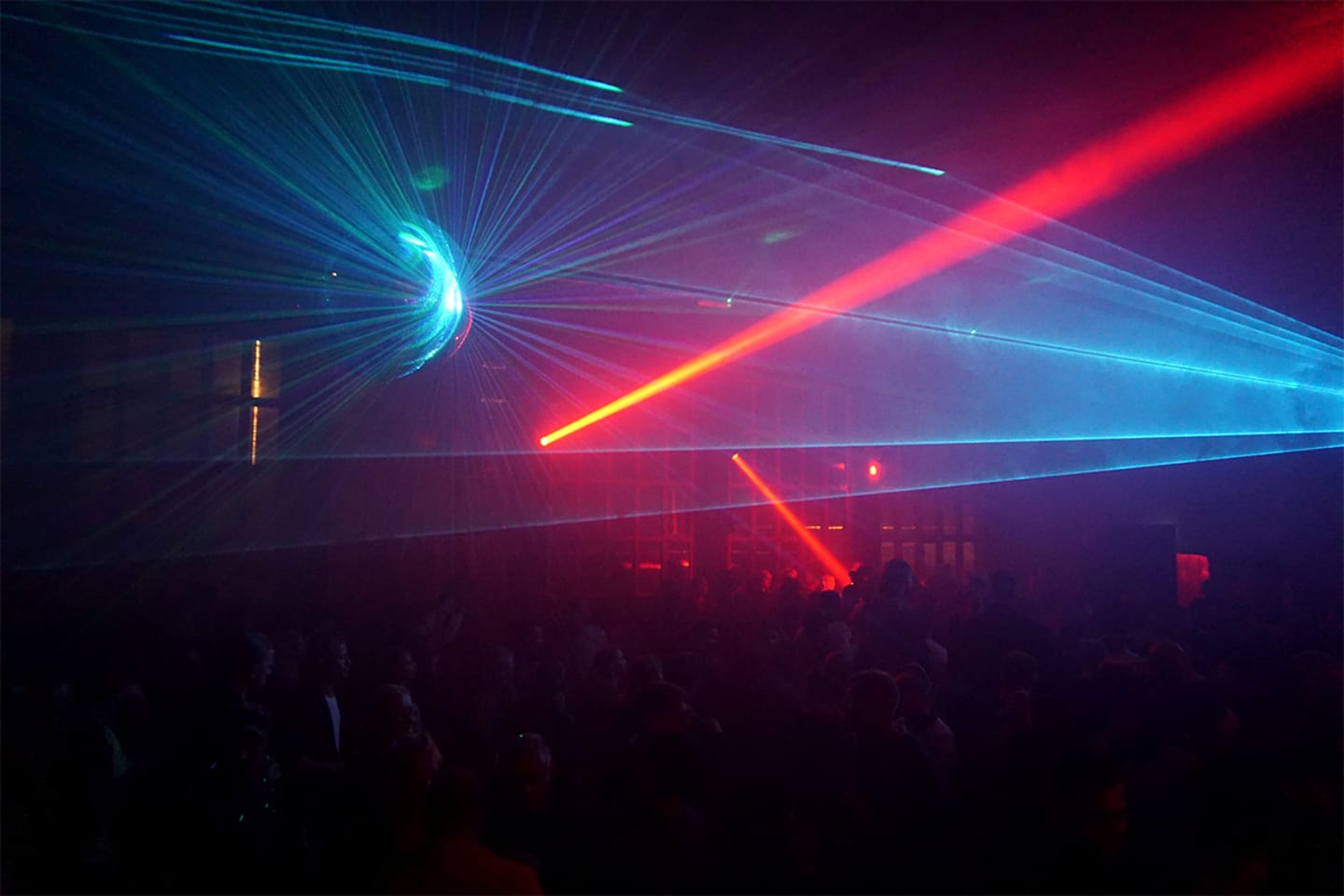
How is your relationship with the city authorities now?
TS: We have a good relationship with them. They’ve realized that we are doing something that is recognized far beyond the city limits of Schwerin. And that puts us in a good position. We also made it a point to always comply with their demands to a T.
HG: We never had trouble with the city in contrast to our relationship with some of the classic mainstream discotheques around here. They were under the impression that we got special treatment when it comes to terms and requirements to get a permit. Some of them actively tried to prevent us from getting one. That was pretty annoying and stressful.
TS: They saw us as competition. Even though musically, aesthetically and in terms of the guests there is very few overlap. Again, that’s part of doing something in a small city. Everyone is seen as competition and a potential threat. Luckily, things have cooled off between these discotheques and us lately.
I’m sure that you followed the whole story around Fusion festival this year. To me it felt like a sneak peak of the future, where subcultural and left-leaning places are under constant threat and pressure by thriving conservatism. What do you make of this?
HG: We had a noticeable shift to the right here in Mecklenburg-Western Pomerania. The whole dispute around this year’s Fusion festival exemplified that all too well. So far, none of this has affected us. But I do worry about the future of alternative culture around here. There is a reason why so many friends of mine have moved to Berlin or Hamburg. As with the rest of the country, there is a clear division. Fronts have hardened over the last few years. We see and feel that less with our guests but more around us in the general public.
TS: Politically we are neutral. It’s important that everyone can feel safe and have a good time at our parties.
HG: On the countryside the clocks tick a little differently. If possible, we don’t want to exclude anyone. I know enough people from around here who aren’t on the same wave length as I am when it comes to politics, but I have known them for years, and they do behave when they come to our parties. Despite our differences of opinion, I still think it’s important to welcome them. In a city like Schwerin, being inclusive means that, too. We create a safe space where everybody can have fun. With our party, we try to model an open and colorful mindset where we treat each other respectfully. And we hope that our guests can take this attitude home with them.
Published August 15, 2019. Words by Sven von Thülen.

